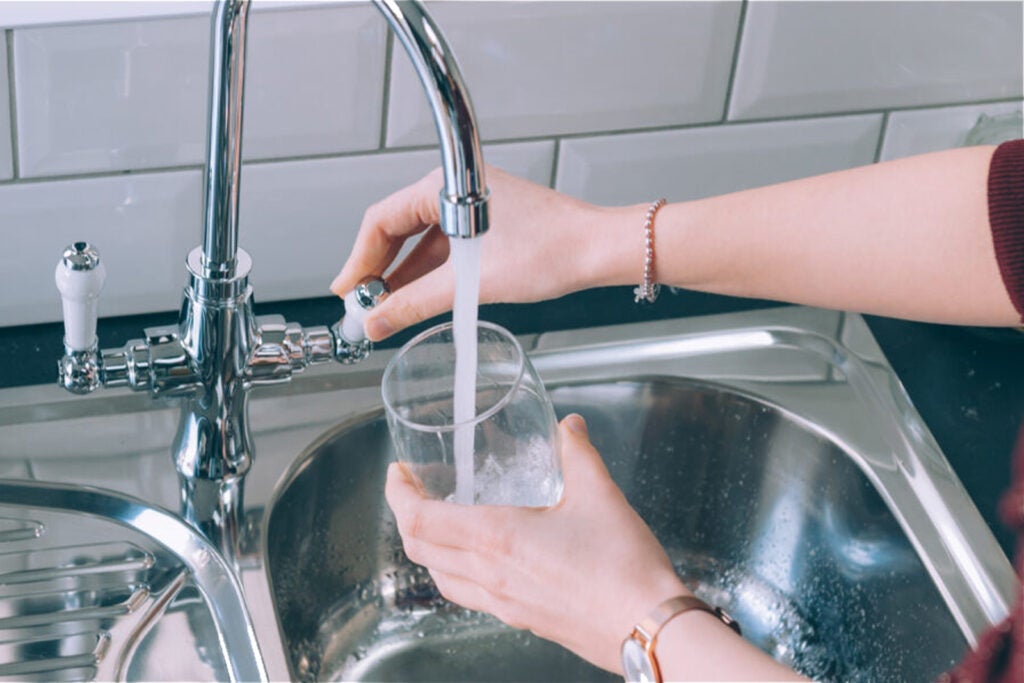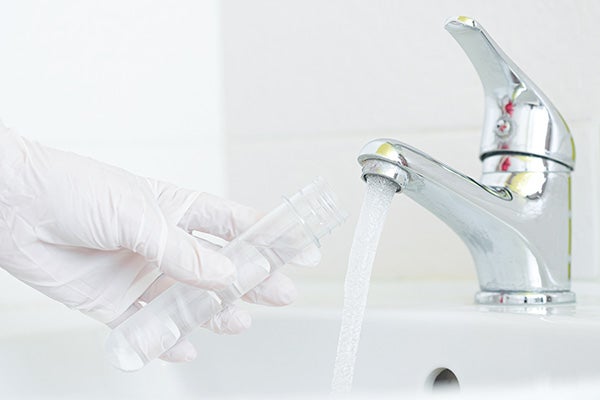Understanding Fluoridation

We are committed to providing safe, high-quality water to our community. As part of our efforts to protect public health, we adjust the fluoride levels in our water supply to meet the guidelines recommended by health authorities.
Frequently Asked Questions
What is fluoride?
Fluoride is a naturally occurring mineral that helps prevent tooth decay. While it’s present in most water sources, the levels are often too low to offer dental health benefits. By carefully adding fluoride to our water, we help protect the community’s oral health, especially for children.
Is my water fluoridated?
Yes, we adjust the fluoride concentration in your drinking water to the optimal level of 0.7 parts per million (ppm), as recommended by the CDC and the American Dental Association. This level has been proven to significantly reduce the rate of cavities without posing any documented health risks.
Why fluoridation is important?
Community water fluoridation is a cost-effective public health measure. Decades of research, including findings from the CDC and other public health organizations, show that fluoridated water reduces cavities by about 25% over a person’s lifetime. It’s an easy, safe way to improve oral health for everyone in the community, regardless of age, income, or access to dental care.
Is fluoridated water safe?
Studies have consistently shown that fluoride in water at recommended levels is safe. Our water supply is regularly monitored and tested to ensure fluoride levels remain within safe and effective limits.
Are there any health risks associated with fluoride?
When fluoride is maintained at recommended levels, it is safe and beneficial for oral health. Extensive research conducted by the CDC, the World Health Organization (WHO), and the American Dental Association (ADA) has consistently shown that fluoridation in drinking water reduces the incidence of tooth decay without causing adverse health effects. If you have specific health concerns, consult your healthcare provider for personalized advice.
What should I do if I have concerns about Fluoride in my water?
If you are concerned about fluoride in your drinking water, the first step is to contact us directly. We are here to address your concerns and provide information to help you make informed decisions about your water quality and safety. Additionally, here are some steps you can take if concerned about Fluoride:
- Fluoride Testing: If you’d like to test the fluoride levels in your water, home testing kits are available online or through specialized stores. Alternatively, you can request a water quality report from us, which includes regular test results of the fluoride concentration.
- Consider Treatment Options: If you prefer to reduce fluoride levels in your water, specific water filtration systems, such as reverse osmosis filters, effectively remove fluoride. Be sure to choose a system certified by NSF International or another reputable organization for fluoride removal.
- Stay Informed: We encourage you to visit reliable sources such as the CDC, EPA, and ADA for more information on water fluoridation. You can also request a detailed report from us or speak with our water quality experts.
Where can I learn more?
To learn more about water fluoridation, here are several reputable sources:
- Centers for Disease Control and Prevention (CDC): The CDC has a comprehensive section on water fluoridation, including its benefits, safety, and history. You can find detailed information on why fluoride is added to public drinking water and how it supports dental health.
- Visit: CDC Fluoridation Basics
- American Dental Association (ADA): The ADA provides scientific resources and advocacy on fluoride and its role in preventing tooth decay. Their site explains how fluoridation works and addresses common questions or concerns.
- Visit: ADA on Water Fluoridation
- World Health Organization (WHO): The WHO offers global perspectives on the benefits of water fluoridation in reducing dental caries, particularly in communities where dental care access is limited.
- Visit: WHO Water Fluoridation
- Environmental Protection Agency (EPA): The EPA regulates the level of fluoride in public water systems and offers insights on the standards and guidelines for safe fluoride consumption.
- Virginia Department of Health (VDH): The VDH recommends optimal fluoride levels in public water systems, and they provide oversight to ensure safe and effective fluoridation across the state.


